If We Risk Nothing, We Risk Everything

How Few Will Hunt (FWH) is reshaping the landscape of America’s overblown sense of entitlement by restoring the dignity of hard work
Interview by Evelyn Sutton
Story and edit by Charlotte McKinley
Not just a clothing brand, Few Will Hunt pushes back against the entitlement the American culture has fallen into. Cousins Joey Bowen and Drew Beech, frustrated at the lazy and self-entitled nature of American culture, are on a mission to launch a counter-movement to restore the dignity of hard work.
“Everyone wants to eat, but few will hunt.”
This mantra guided the cousins as they set out to start a movement.
Joey, who was in the tech industry, and Drew, who was already in the apparel industry, designed their first shirt with the mantra on it. The next step? Foster an Instagram community focused on creating inspiring, educational content that inspires like-minded people to pursue their goals while embracing pain and risk.
In 2018, the cousins realized they needed to get serious about treating FWH as a family business. Thus, more focus was poured into their apparel, and it continues to grow and evolve as the community grows.
Worn by people in over 75 countries, the FWH movement is championed by coffee shop writers to UFC fighters alike. Their commonality? They want to eat and are willing to hunt.
JM: When you started in 2017, did you envision the tremendous growth you’ve experienced? Could you have foreseen being where you are today?
Joey: Not for a minute. Now, did I have the vision that we were going to be here? Yes, but there was naturally some doubt. It’s a very difficult thing to do. I think what you see is the result of pure intention.
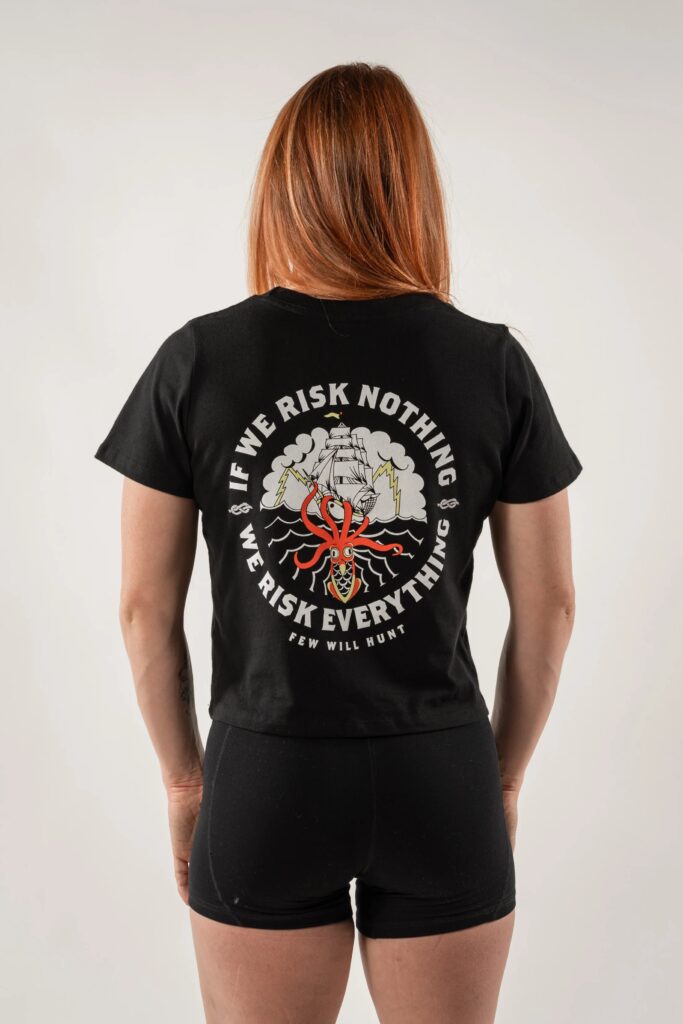
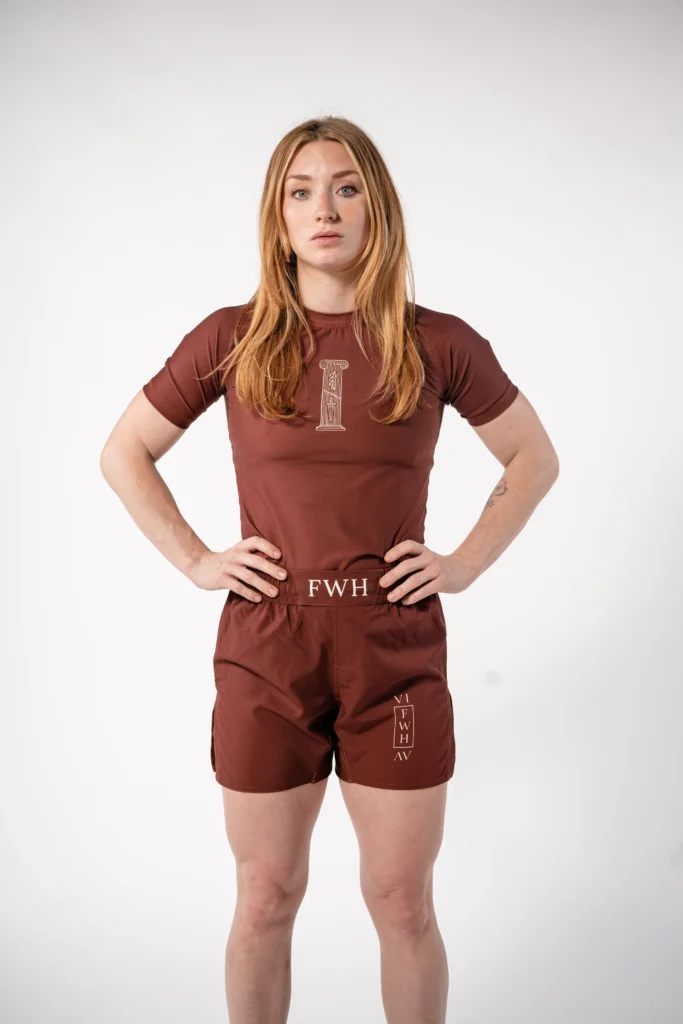
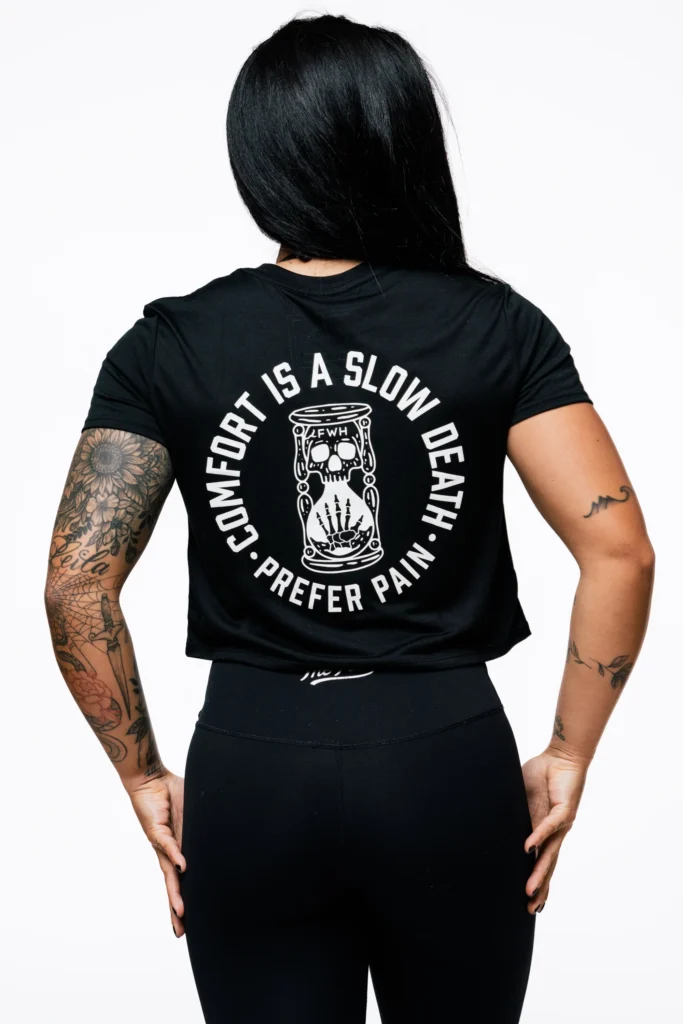
JM: What are some of the factors you believe that determined your success?
Joey: We were always community first. I think that was the biggest factor. And also like Drew said, we would always come with the giving hand. We were there to empower and inspire and connect like-minded individuals. We didn’t come out with something to sell. We came out of the gate saying, let’s all huddle together, make ourselves stronger and change society. And you can, if your intentions are pure in that pursuit, you can’t lose. You just can’t. Even if the business end of things wasn’t successful, you still can’t lose because you’ve connected with people and impacted their lives. So it’s impossible to lose. There’s nothing better than that. I think that community first focus was really the driving factor to our growth, for sure.
Drew: It’s funny. Did we know we would get here? And I feel like we did, but it was so hard to believe. You know what I mean? We were like, this is where we’re going. We were so mission focused. The true story is… it was never overnight because it took so long to actually have success. What makes us different from everybody else and why we made it is because one, like Joey said, we were always giving first. We just want to leave the world better than we found it. And one night after a hard day — the register wasn’t ringing — I’m like, Joe, I don’t know how we’re going to make this work, dude. And Joey’s said, ‘we’re going to make this happen or we’re going to die on the sword.’ We were willing to die trying. I think that a lot of people don’t have that when it comes to business or any venture, even Jiu-Jitsu.
“A lot of the content that we create on a daily basis that you see published to our Instagram feed to help empower and inspire others to do hard things is born from the courage of the community and the things that they’ve overcome.”
Joey Bowen, FWH
JJM: How did Few Will Hunt and Jiu-Jitsu get involved? Do you train?
Joey: I did not train before FWH. FWH has given me a lot of things. One of the best things it’s given me is Jiu-Jitsu. Now I train three times a week and I don’t think I would have begun training if it wasn’t for FWH. When we started, we didn’t even set out to make fight gear. We didn’t set out to have such a presence in Jiu-Jitsu. It all happened naturally and that’s what made it so beautiful. The same with my training. It just happened naturally. It was a beautiful thing.
Drew: My good friend now, Sean Brady, actually, I just tell the story with like how we started making rash guards and fight wear. He’s like, ‘dude, you guys should do rash guards.’ And I’m like, what’s a rash guard? And he’s said, ‘we wear them for Jiu-Jitsu.’ I ran it by Joey and we set out to find literally the highest quality rash guard we could find. I believe that we became such a staple name in the Jiu-Jitsu community because we put out the highest quality rash guard we could find and make. But yeah, I give the credit for starting Jiu-Jitsu to Sean Brady.
JM: How do you see the relationship between FWH, a brand that supports and empowers individuals, and the female community of Jiujiteras in Brazilian Jiu-Jitsu and MMA?
Joey: Some of our strongest and most resilient athletes that we have on our roster right now are women. Some of them come from paths where there was domestic violence or there was mental abuse, things that brought them to the mats. They stay because they’ve found a way to rebuild themselves and reclaim themselves on the mat. What better testament to the power of Jiu-Jitsu than that? We’re on a mission to restore the dignity of hard work. I don’t believe that can be done and society can be strengthened to that caliber with just men. Like that doesn’t even make sense to me. I think that the only way we’re going to get there is with strong men and women. So for us, everything we do is pointed at both in our community.
Drew: It’s funny [because] sometimes we get misconstrued as an alpha male brand, but when you look at our roster and you see [all the female athletes], for some reason women are so gravitated towards the design and the messages of FWH. Like all the messages we put out about overcoming adversity and embracing pain, our message speaks a lot to women and that’s why they’re so drawn to the FWH movement because that just hits them on a different level.
Joey: One other thing to note is [that] Drew and I were both raised by strong women, primarily. So that’s our background as well.
FWH Female Athletes
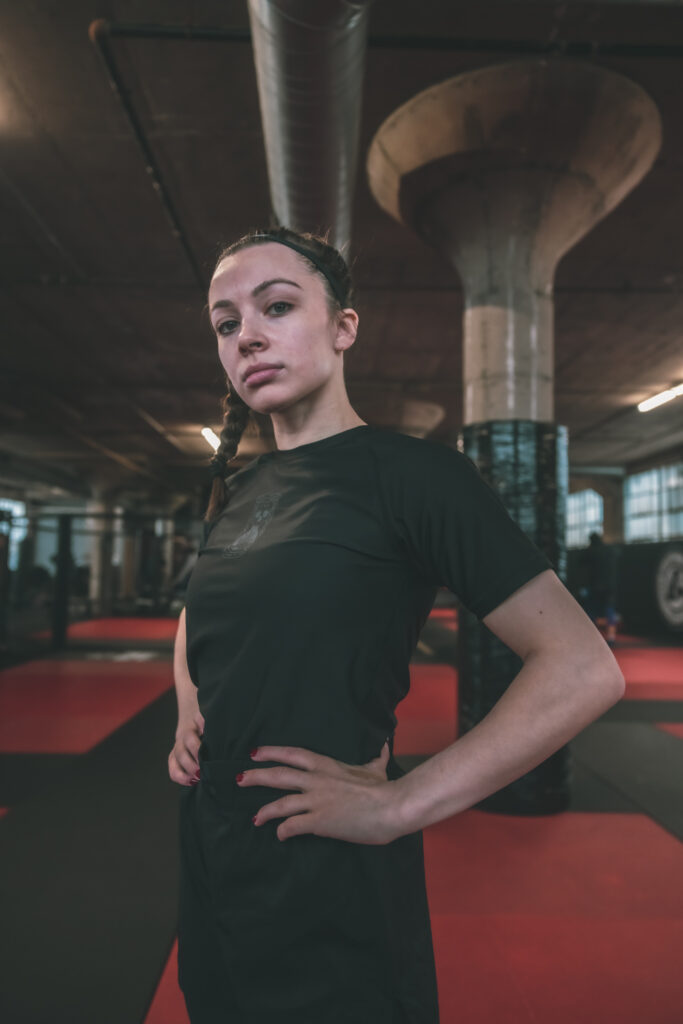
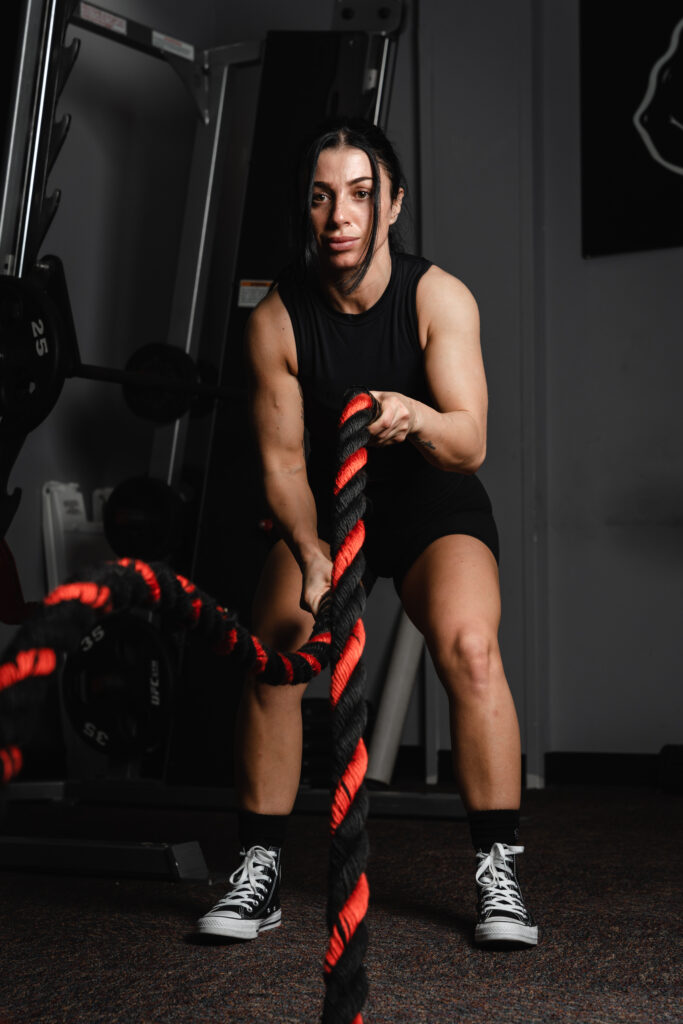
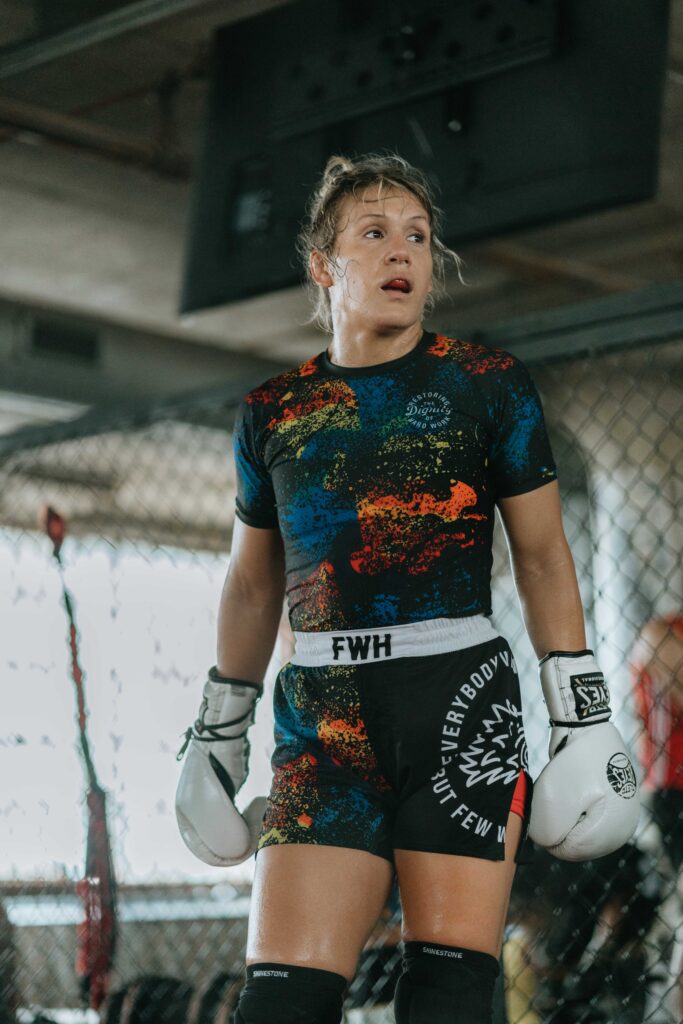
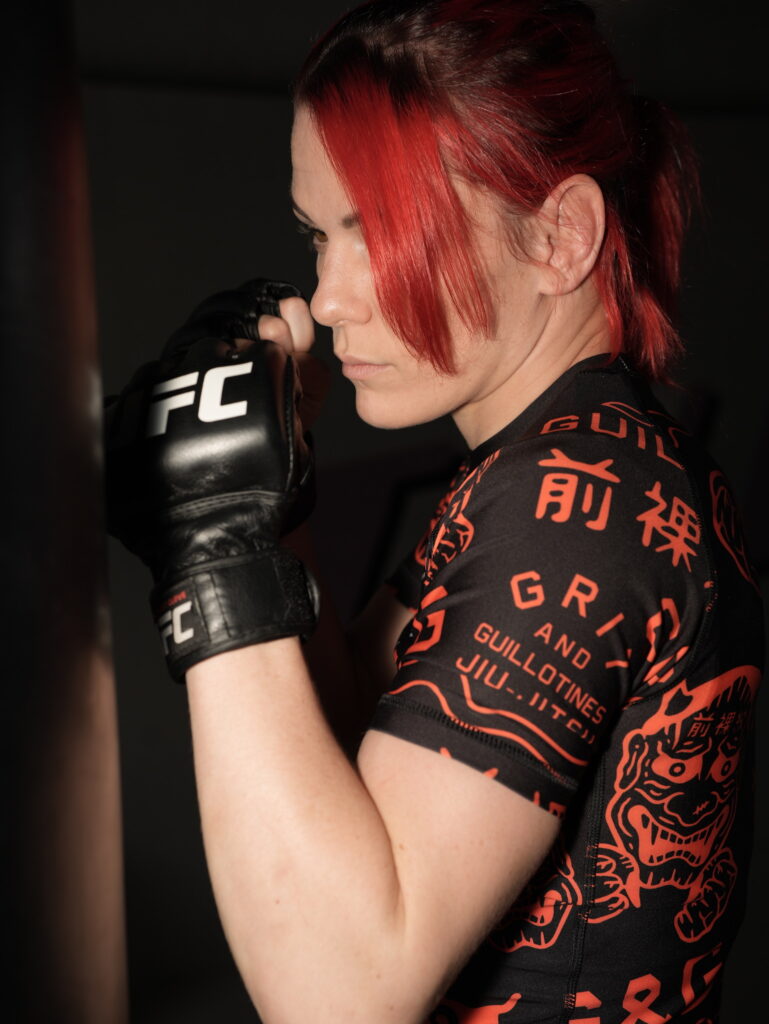
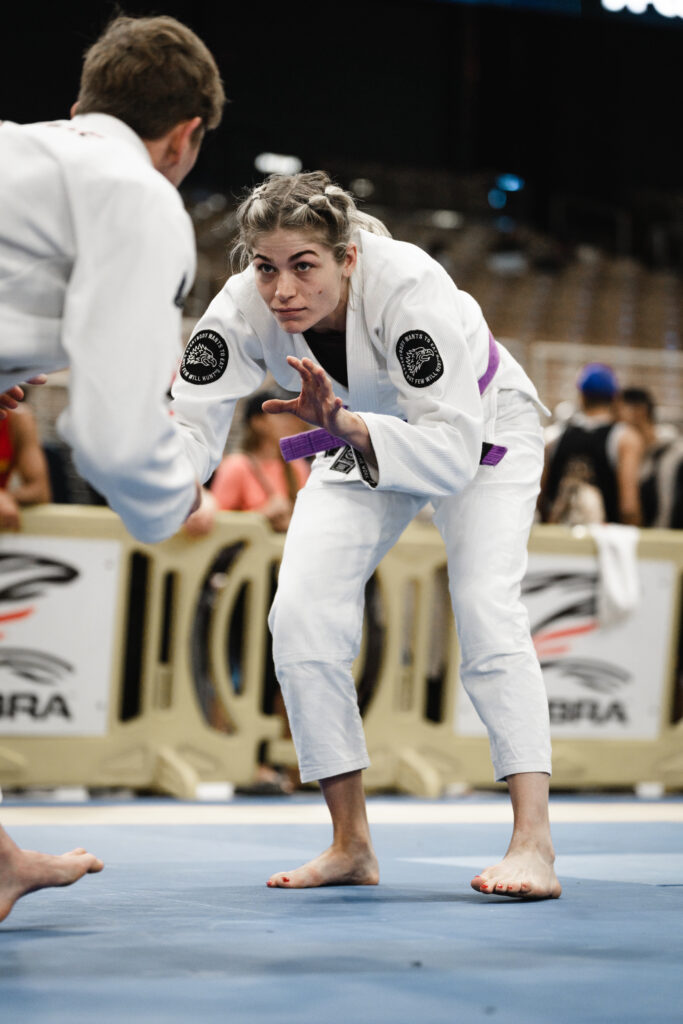
“We came out of the gate saying, let’s all huddle together, make ourselves stronger and change society. And you can, if your intentions are pure in that pursuit, you can’t lose.”
Joey Bowen, FWH
JM: The things that you put out there are very powerful. Where does the inspiration for the designs come from?
Joey: Life experience for sure. How we grew up, where we grew up, when we grew up, the challenges we had growing up, but bigger than that was us actually building the community, building the Few Will Hunt community. It was hard and it still is hard. A lot of the inspiration for our designs and our messages come from that grind, that struggle. Now that I train, that gives me a ton of inspiration as well for the sketches and the messaging and our mantras because there’s no personal development program quite like Jiu-Jitsu. I mean, it is a physical, mental and spiritual challenge every time that you get on the mat. I love that I love the feeling of it. It’s also a huge source of inspiration, obviously.
Drew: Yeah, I was gonna say the same thing. The challenge we had in our old careers that gave us the inspiration for FWH now gives us new inspiration because the entrepreneur game is that much harder than our old struggles were. Me and Joey were talking about how Jiu-Jitsu is the only thing lately that gets me into a flow state. When I’m training, as I just came from there, it’s as if the entire world fades away, and all that occupies your mind are your next moves on the mats. There are no distractions to disrupt your focus.
Joey: As the community has gotten larger and grown over the years, we’ve heard many, many stories of the few. And some of those stories as well, the adversity that they’ve had in their life, addiction, loss, pain, trauma, they’ve also inspired us to create some of the designs and content. A lot of the content that we create on a daily basis that you see published to our Instagram feed to help empower and inspire others to do hard things is born from the courage of the community and the things that they’ve overcome.
JM: How did you select your female pro-athletes? What is it about them?
Drew: With Molli, Amanda, and Danielle, we just had natural connections, gravitation toward each other. They popped up and started wearing our gear and posing and tagging us. One of our core values as a company is to give first, so when someone comes with that level of support and give to us, that makes me wanna just give right back and pour into them. So that’s how we chose those few specifically. What defines a FWH athlete are those who are willing to put in the work that other people aren’t. And that shows.
Joey: So much of our relationships when it comes to the FWH community, whether you’re an athlete on the roster and a community member or just a community member, so many of the relationships just happened organically. That’s how you know that we’re onto something here. We are succeeding in our mission of restoring the dignity of hard work and empowering people to overcome their past — their past pain, their past trauma. We’re not reaching out to people and say, hey, would you be an athlete, a few-hunt athlete? They’re not reaching out to us and asking, it’s just happening organically. And it’s just, I can’t think of any other word but beautiful to describe it.
JM: What lessons from your experience as an entrepreneur you’ve applied to Jiu-Jitsu, and conversely, what lessons from Jiu-Jitsu have you brought back to your company?
Joey: Show up every day, don’t quit. So they’re the two founding things, right? For Jiu-Jitsu, I made a promise to myself in the very beginning, no matter how bad I sucked at it, or no matter how bad I thought I sucked at it, I would never stop going. It was a no-quit attitude. Just like FWH, if I stay consistent, and I have great training partners that hold me accountable and pour into me, and I pour back into them, again, I can’t lose. You’re talking broken fingers, I’ve had broken fingers, I’ve had a broken orbital floor, I fractured my skull. Numerous tears and bends and things like that. In the beginning, in that break-in period, I did promise myself I wasn’t going to stop. The same strategy we applied to FWH, and it worked out.
Drew: If you’re going to be an entrepreneur or a business owner, you have to have that same relentless pressure. You gotta just keep getting back out there, because you’re going to get punched in the face over and over again. You’re relentless.
Joey: My instructor asked my class, what is your strength on the mats? What are you good at, basically? Some people were saying, triangles, arm bars, and other people were saying, escapes. He got to me, and I said, “I can take a beating.” That’s literally what it is. So much of it, at this stage of my training, is taking a beating. I’m putting it together, but it’s a beating.
JM: How do you balance your daily personal life with being an entrepreneur?
Drew: It’s not a work-life balance anymore, it’s a work-life mix. Life, for me, is work. Family and everything fits in there, it blends, and then Jiu-Jitsu, and training, weightlifting, recovery, it all blends in. But my mission on this earth is to be a strong father and a strong leader in our community, and they’re almost as equally weighted in my life, but it’s all one big blend for me. When I get done being a dad, I get right back to work.
Joey: Yeah, I would agree. I mean, it’s definitely a mix, it’s a blend. I let go of that balance thing a long, long, long, long time ago. I think when you’re an entrepreneur, you can’t be balanced. I mean, you have to be a bit crazy sometimes and obsessed. I just make sure that, as obsessed as I am with FWH, I make sure I’m just as obsessed with my wife and my kids, and I’m just as obsessed with Jiu-Jitsu. The way I do that is to be as present as possible. With Jiu-Jitsu, that’s easy, right? Because that puts you in that flow state. It’s much harder, I guess, when you’ve had a stressful day as an entrepreneur, and then you have to be present for your family. I do my very best to just make every moment matter, and stay present and focused in the arena that I’m currently in, and sometimes it’s 95% business some days, and 5% everything else, and other days it’s 5% business, and 95% everything else. It’s a flow, and it’s a mix.
JM: What can we look forward to as far as new products for 2024? Can you give us a sneak peek?
Joey: We’re cutting over to 100% American made, which we’re very proud of. Right now we’re almost there. Come this July, we’ll be starting the transition over to 100% American made. So that’s the big news as far as products go. With that transition, we will also be doing some gis. I messaged the pro grapplers on our roster to make sure that we get the sizing right so we’re not putting out some unisex thing. We’ll have men’s sizes and women’s sizes. We still have some work to do. Most of our fight wear is unisex, but we do realize that the cut of some of our cross combat shorts needs to be altered a bit for women, so we’re working on that as well. It’s full steam ahead over here. We’re putting a lot of time and effort into the blend of the material. Twill cotton for the pants and then a heavier pearl weave for the jacket. And then essentially tailoring it. That’s what we have to get into, a little bit of a different silhouette for men versus women. There’s a couple samples floating out in circulation. Molly has one, so folks have seen them and they’re getting excited and we love to see that.
JM: What do you see as the next level for FWH?
Joey: We’re going to keep growing. We have a 10-year target of serving 1-million hard workers, and that’s what we’re marching towards. We’re way over the 100,000 mark with community members, so we have some ground to make up, so we’re halfway into the 10 years, but that is our big, compelling 10-year vision: to serve 1-million hard workers. That doesn’t mean – million hard workers wearing our rash guard. It could be some of our community members in our Instagram community sending us a DM, having a hard time, and we respond to them. It’s just service, pure service, to 1-million hard workers. If we can do that, it’s game over. We’re everything that a community and apparel brand is now that people think. When we reach that level, we’ll completely redefine it.
Shop FWH
Follow @fewwillhunt


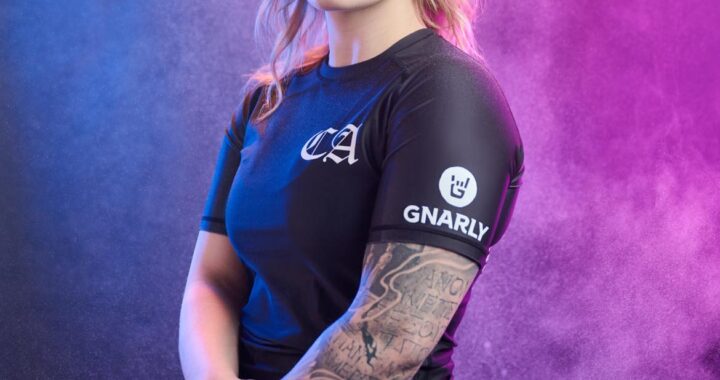 Elisabeth Clay: On Top of the World
Elisabeth Clay: On Top of the World 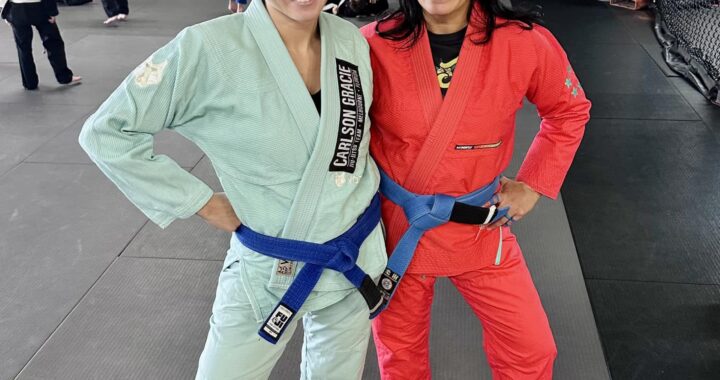 Stronger Together: The Bonding Power of Jiu-Jitsu
Stronger Together: The Bonding Power of Jiu-Jitsu 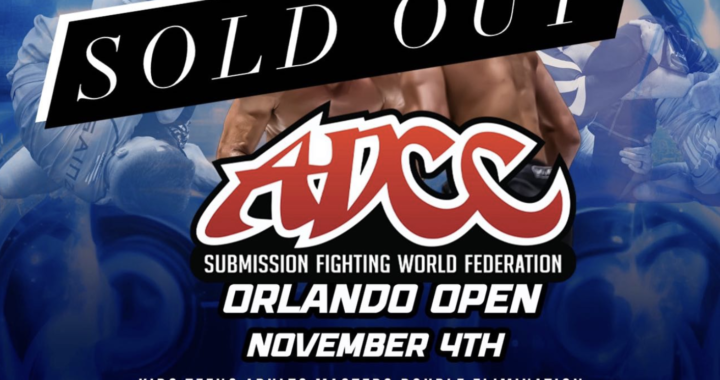 Counting Down to ADCC Orlando Open: Competitors Prepare for the Biggest Open in ADCC History, Less than 48 Hours to Weigh-Ins
Counting Down to ADCC Orlando Open: Competitors Prepare for the Biggest Open in ADCC History, Less than 48 Hours to Weigh-Ins 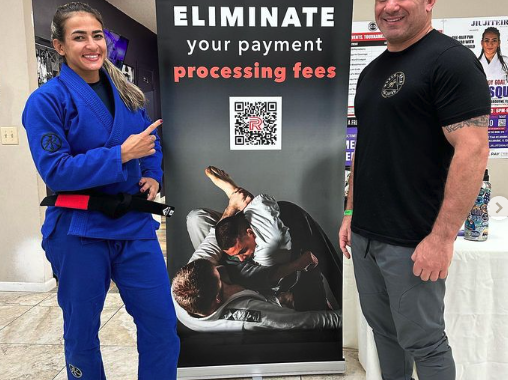 Revolutionizing Gym Finances: How RollPay Helps Gym Owners Save and Give Back to the Jiu-Jitsu Community
Revolutionizing Gym Finances: How RollPay Helps Gym Owners Save and Give Back to the Jiu-Jitsu Community 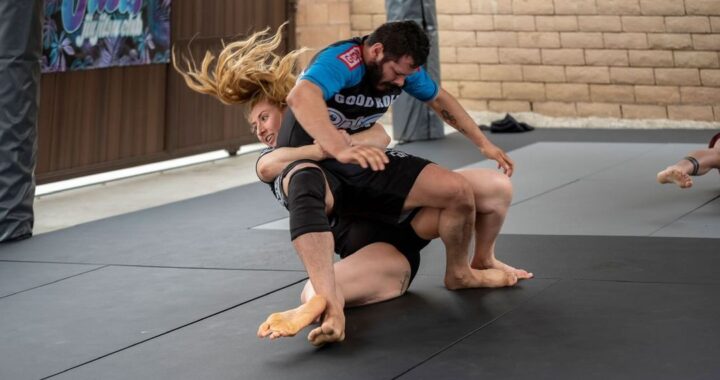 Gender Discrimination Affects Coaches
Gender Discrimination Affects Coaches 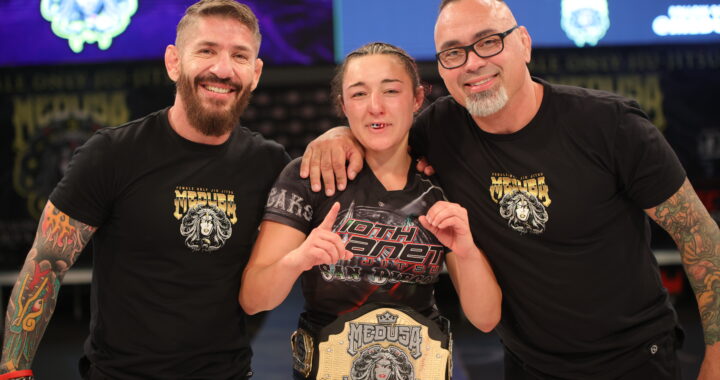 Bre Stikk is crowned the first ever Medusa Combat Jiu-Jitsu Flyweight Champion
Bre Stikk is crowned the first ever Medusa Combat Jiu-Jitsu Flyweight Champion 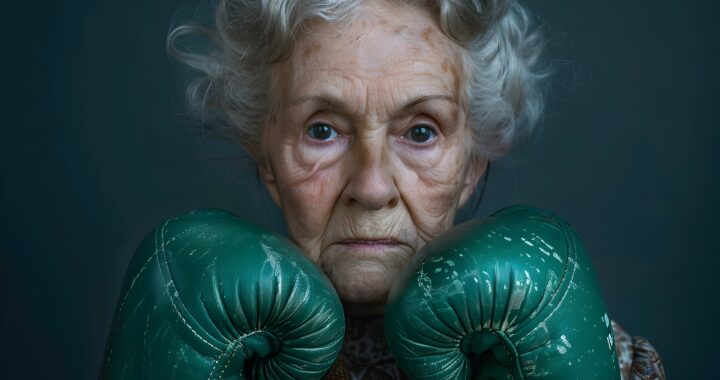 Father Time is Undefeated
Father Time is Undefeated 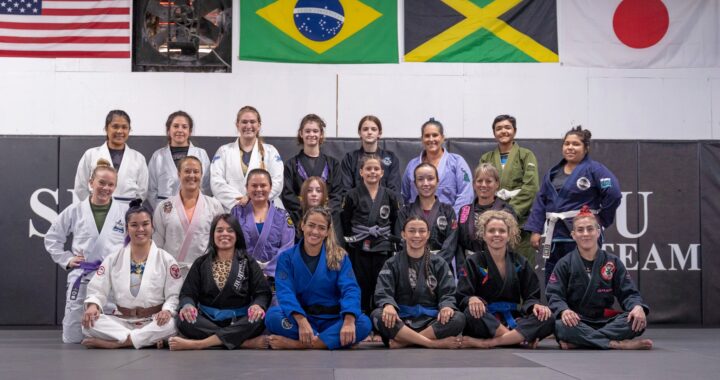 The Jiujiteira Sisterhood
The Jiujiteira Sisterhood 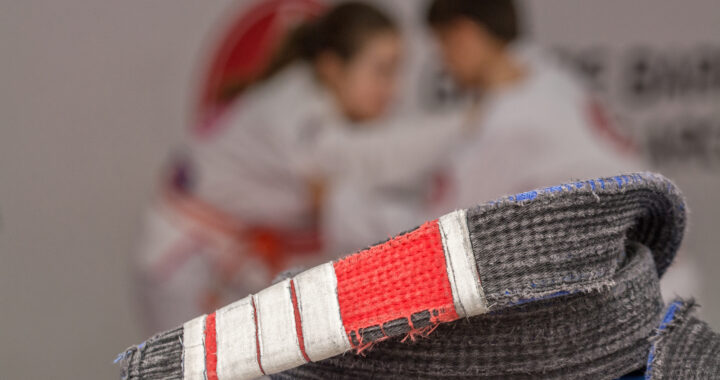 Advice in the Ranks- From White to Black
Advice in the Ranks- From White to Black  ADGS Rome: Jiujiteiras Shine in the Land of the Colosseum
ADGS Rome: Jiujiteiras Shine in the Land of the Colosseum